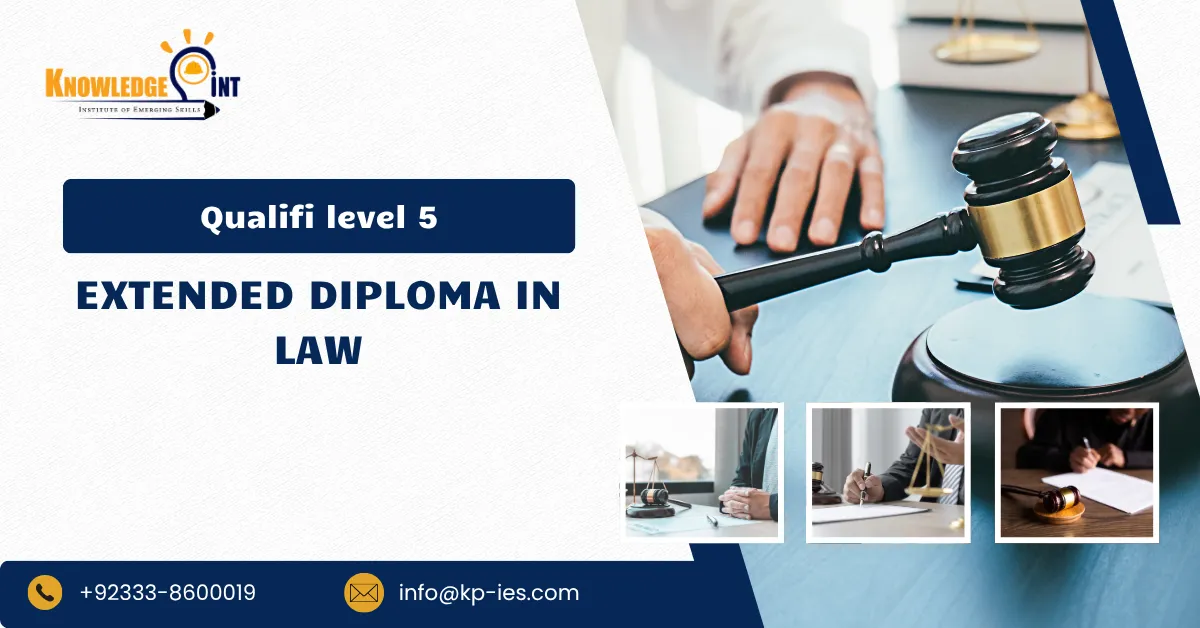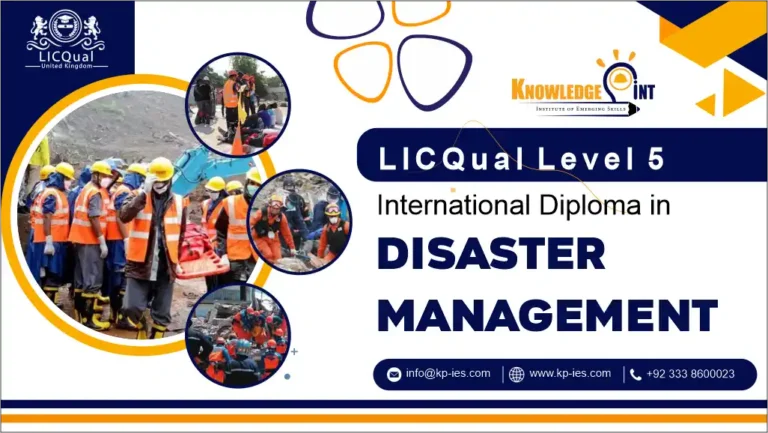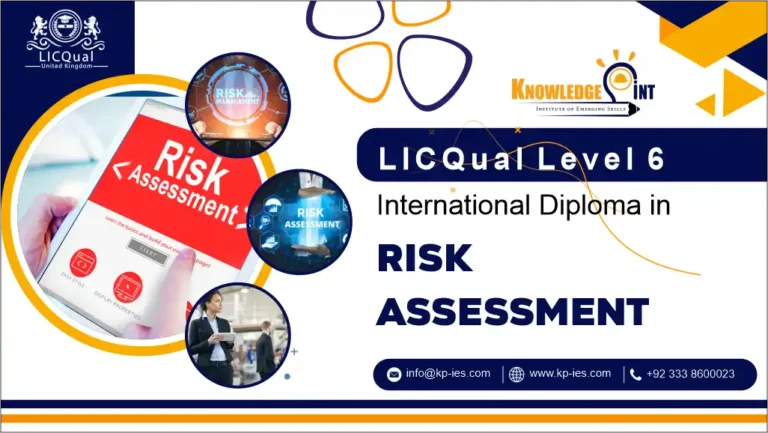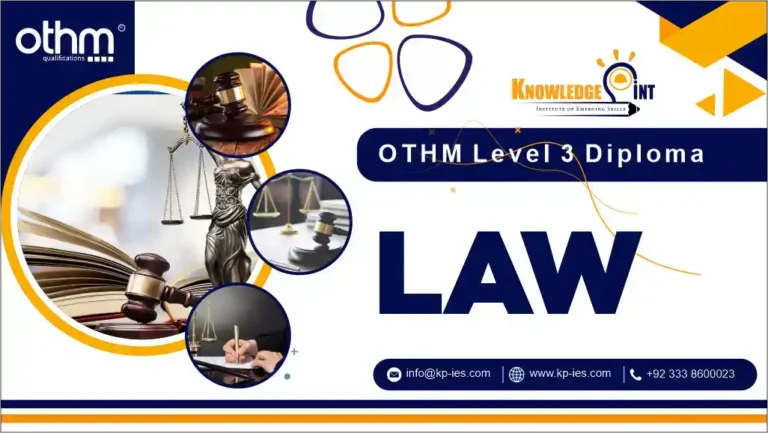The Qualifi Level 5 Extended Diploma in Law is an advanced qualification designed for learners who wish to deepen their understanding of legal principles and progress toward a full law degree or a professional legal career. Equivalent to the second year of a university law degree in the UK, this diploma builds upon the knowledge gained in a Level 4 qualification and prepares students for more specialized and complex areas of legal study. It is particularly suited for those who are aiming to pursue roles such as legal executive, paralegal, compliance officer, or for those planning to progress to the final year of an LLB (Hons) degree.
This diploma covers a range of essential legal subjects, including Company Law, Employment Law, Land Law, EU Law, the Law of Trusts, and Legal Research and Advanced Writing. These units are carefully structured to provide both theoretical depth and practical relevance, ensuring learners can analyze complex legal issues, construct logical arguments, and apply legal knowledge to real-world scenarios. The inclusion of advanced legal writing and research skills also equips learners to handle tasks commonly encountered in professional legal practice.
One of the major benefits of the Qualifi Level 5 Extended Diploma in Law is the clear academic and professional progression it offers. Learners can use this qualification to gain entry into the final year of many UK university law degrees, saving time and money compared to traditional university routes. Furthermore, it enhances employability by preparing learners for mid-level roles in law firms, corporate legal departments, government agencies, and non-governmental organizations. The diploma is regulated by Ofqual, which ensures its recognition and credibility both in the UK and internationally.
Flexibility is another key advantage. This diploma is often delivered through online or blended learning formats, making it ideal for working professionals, international students, and those with other commitments. The ability to study part-time or at your own pace allows learners to balance education with personal and professional responsibilities.
Course Overview
The Qualifi Level 5 Extended Diploma in Law consists of 8 mandatory units which are as follows.
- Contract Law
- Criminal Law
- Legal Methods
- Public Law
- Equity and Trusts
- EU Law
- Land Law
- Law of Tort
Learning Outcomes for Qualifi Level 5 Extended Diploma in Law
Contract Law
Learners will develop a comprehensive understanding of the principles governing the formation and enforcement of contracts. They will be able to identify and evaluate the essential elements of a valid contract, including offer, acceptance, consideration, and intention to create legal relations. Learners will also be able to interpret contractual terms, assess the consequences of breach, and apply legal remedies. Through case studies and scenario-based learning, they will apply contract law principles to real-life commercial and consumer situations.
Criminal Law
This unit enables learners to explore the fundamental principles of criminal liability, including actus reus and mens rea. They will examine various offences such as homicide, theft, and assault, and understand the legal defenses that may be applicable. Learners will analyze statutory provisions and case law to evaluate the effectiveness of criminal law in maintaining justice and public order. They will also learn to apply legal reasoning to problem-solving within criminal contexts.
Legal Methods
Learners will gain essential skills in legal research, analysis, and interpretation. They will develop the ability to read and understand legal texts, statutes, and case law. This unit emphasizes the use of legal databases, citation standards, and the construction of coherent legal arguments. It also introduces learners to the role of precedent and statutory interpretation in legal reasoning. By the end of the unit, learners will be able to produce well-structured legal writing and apply appropriate legal methods to academic and practical problems.
Public Law
This unit provides an understanding of the structure and functions of government, the constitution, and the relationship between the state and individuals. Learners will explore topics such as parliamentary sovereignty, the rule of law, separation of powers, and judicial review. They will analyze the role of courts in upholding constitutional principles and examine the impact of public law on individual rights and freedoms. The unit fosters critical awareness of how legal frameworks support democratic governance.
Equity and Trusts
Learners will explore the development and application of equitable principles in English law. They will understand the nature and function of trusts, the duties and responsibilities of trustees, and the rights of beneficiaries. The unit covers key topics such as express trusts, resulting and constructive trusts, fiduciary obligations, and equitable remedies. Learners will be able to apply equitable doctrines to practical legal problems and appreciate the significance of equity in achieving fairness and justice.
EU Law
This unit introduces learners to the legal structure and sources of European Union law. They will examine the roles and functions of EU institutions, the supremacy and direct effect of EU law, and the impact of EU legal principles on domestic legislation. Learners will analyze the four fundamental freedoms of the internal market and assess EU policies in areas such as competition, human rights, and citizenship. The unit also explores how EU law is enforced and interpreted by the Court of Justice of the European Union.
Land Law
Learners will gain a thorough understanding of the legal concepts governing ownership and rights in land. The unit covers estates and interests in land, the transfer and registration of land, leases, easements, mortgages, and co-ownership. Learners will analyze how land law balances the interests of landowners, tenants, and third parties. They will also develop the ability to apply legal rules to resolve disputes involving property rights and land transactions.
Law of Tort
In this unit, learners will explore the principles of tortious liability, including negligence, nuisance, defamation, and liability for defective products. They will understand the requirements for establishing liability, such as duty of care, breach, and causation. Learners will also assess the defences and remedies available to both claimants and defendants. The unit encourages critical evaluation of how tort law protects personal and property rights and addresses social and economic harms.
Course Benefits of Qualifi Level 5 Extended Diploma in Law
The Qualifi Level 5 Extended Diploma in Law offers a wide range of academic and professional benefits for learners aspiring to build a successful career in the legal field. One of the key advantages of this course is its depth and breadth of content, which allows learners to explore complex areas of law such as Contract Law, Criminal Law, Public Law, EU Law, Equity and Trusts, Land Law, and the Law of Tort. This in-depth knowledge equips students with a solid legal foundation comparable to the second year of an undergraduate law degree, making it a valuable qualification for those aiming to pursue higher education or enter the legal profession.
The diploma is regulated by Ofqual, which ensures quality, credibility, and recognition by employers and universities both in the UK and internationally. Learners who successfully complete this qualification are well-positioned to progress to the final year of an LLB (Hons) degree or pursue further legal training, such as the Solicitors Qualifying Examination (SQE) or Bar training courses. This progression pathway saves both time and tuition fees, offering a flexible and cost-effective route to a full law degree and professional legal qualification.
Another significant benefit is the development of practical legal skills. Learners gain valuable experience in legal research, case analysis, problem-solving, and professional writing. These skills are essential for roles such as legal assistants, paralegals, compliance officers, and other law-related positions. The course also enhances transferable skills, including critical thinking, communication, and academic writing, which are valuable across a range of industries.
Flexibility in learning is also a major benefit. The diploma is often offered through online or blended learning formats, allowing learners to study at their own pace while balancing work or personal commitments. This makes the qualification accessible to a wide range of learners, including working professionals, career changers, and international students.
Upon successful completion of the Qualifi Level 5 Extended Diploma in Law, learners have several progression pathways available:
- The Qualifi Level 5 Extended Diploma in Law serves as a vital stepping stone for learners aiming to progress in both academic and professional legal pathways. Upon successful completion of this qualification, students are well-positioned to advance to the final year of an undergraduate LLB (Hons) degree at a wide range of UK and international universities. This offers a cost-effective and time-efficient alternative to traditional degree programs, allowing learners to complete a full law degree with just one more year of study.
- Academically, the qualification also opens doors to postgraduate studies such as a Master’s in Law (LLM), or professional training courses required to qualify as a solicitor or barrister in jurisdictions like the UK. For example, learners may choose to prepare for the Solicitors Qualifying Examination (SQE) in England and Wales, or pursue the Bar Training Course (BTC) to become a barrister. These progression routes enable learners to meet the formal requirements for practicing law at a professional level.
- Professionally, graduates can enter the legal sector in roles such as paralegal, legal executive, compliance officer, legal researcher, or court administrative staff. The comprehensive nature of the course also benefits those aiming to work in corporate legal departments, government agencies, NGOs, or international legal organisations, where legal knowledge is a key asset.
- In addition, the qualification strengthens learners’ profiles for multidisciplinary roles in areas such as business, finance, public policy, and human rights, where legal expertise is increasingly in demand. As laws and regulations become more complex across industries, individuals with strong legal backgrounds are valued for their ability to navigate legal challenges, ensure regulatory compliance, and contribute to ethical decision-making.







